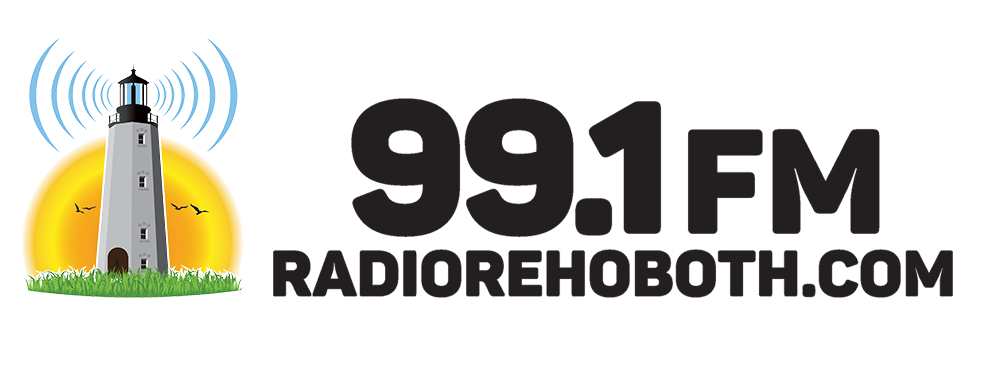-
 play_arrow
play_arrow
Radio Rehoboth

Get ready to see more electric vehicles on new car lots. The Department of Natural Resources and Environmental Control announced Nov. 29 that it has finalized plans to adopt California’s Advanced Clean Car II program, but with some modifications to the original plan that was announced a year ago.
Instead of requiring all car dealerships to sell only zero-emission vehicles by 2035, the plan is to sell 82% by 2032. The change would start in 2026 with model year 2027, requiring 43% of new cars and trucks sent to Delaware for sale to be ZEVs. The regulations will expire in model year 2033.
“By adopting the revised regulation, DNREC aims to protect public health, reduce emissions and align with Delaware’s climate goals all while providing consumers with cleaner and more sustainable transportation options,” said DNREC Secretary Shawn M. Garvin in a press release. “This decision will result in cleaner air in Delaware and strengthen protections for communities overburdened by exposure to tailpipe pollution.”
Gov. John Carney announced his commitment to the California emission plan in 2022 as part of the U.S. Climate Alliance.
Public workshops held more than a year ago leading to an April public hearing generated public comments. Thousands of written comments were collected before the final decision was made. Some EV drivers complained about the lack of charging stations throughout the state. Garvin said the state’s electric vehicle charging network will be improved under Delaware’s Climate Action Plan, placing more stations along major highways and closer to rural and underserved areas. DNREC will also annually review the number of ZEVs delivered to Delaware, supply chains, battery performance and affordability.
The federal government provides tax credits and rebates for new ZEV purchases, and DNREC offers a rebate up to $2,500.
Following DNREC’s announcement, the Sierra Club Delaware Chapter, Natural Resources Defense Council, Union of Concerned Scientists, and the American Lung Association all came out in favor of the new regulations. House Republicans issued a statement opposing the change, in part because they say the regulation has changed from what was first proposed.
Rep. Rich Collins, R-Millsboro, said he believes DNREC is on thin legal ice. “The rules they announced … are not the same rules they unveiled for public discussion earlier this year,” he said in a statement. “Under the state Administrative Procedures Act, they should be resubmitting this altered proposal for review, not finalizing it.”
Collins also said DNREC’s actions are a slap in the face of Delaware citizens who clearly told the agency they did not support the proposal. “Thousands of Delawareans submitted comments, came to public meetings and responded to polls, and they overwhelmingly told DNREC they did not want them to pursue this. This is an action of profound disrespect to all Delawareans. Essentially, DNREC is following their agenda at the expense of citizens’ rights and then having the gall to tell them they are doing it for their own good. DNREC is the embodiment of hubris,” he said.
Delaware’s ZEV requirement comes as the automobile industry struggles to sell electric vehicles. Ford is reportedly losing an estimated $60,000 per electric vehicle, for a total projected annual loss of $4.5 billion, and General Motors announced in October that it is abandoning plans to build 400,000 EVs by mid-2024.
While Tesla sales remain strong – more than all the other EV manufacturers combined in the third-quarter – it has cut prices for its vehicles.
Higher interest rates, concerns about range and limited recharging stations are some of the concerns consumers nationwide have raised over purchasing electric vehicles.
Go to Source:https://www.capegazette.com/article/dnrec-finalizes-plans-adopt-revised-car-emission-regs/268062
Author: Melissa Steele
Written by: RSS
Similar posts
-

Daybreak Morning Show
Hosted by Jeff Balk
Join Jeff Balk for all the news and information you need to know to start your day and enjoy your stay in Rehoboth Beach, Dewey Beach and the Lewes areas with special featured guests from our non-profits, businesses and art communities.
close Chart
Top popular

News Briefs 10/17/23
Board of Commissioners Workshop & Special Meeting – November 6

Six Sussex road projects considered in latest CTP
NFL Week 17 highlights: Packers, 49ers, Saints, Steelers win, Cardinals stun Eagles
Knicks vs. Cavaliers prediction, odds, line, spread, time: 2023 NBA picks, Nov. 1 best bets from proven model
Copyright 2023 East Sussex Public Broadcasting, Inc.





